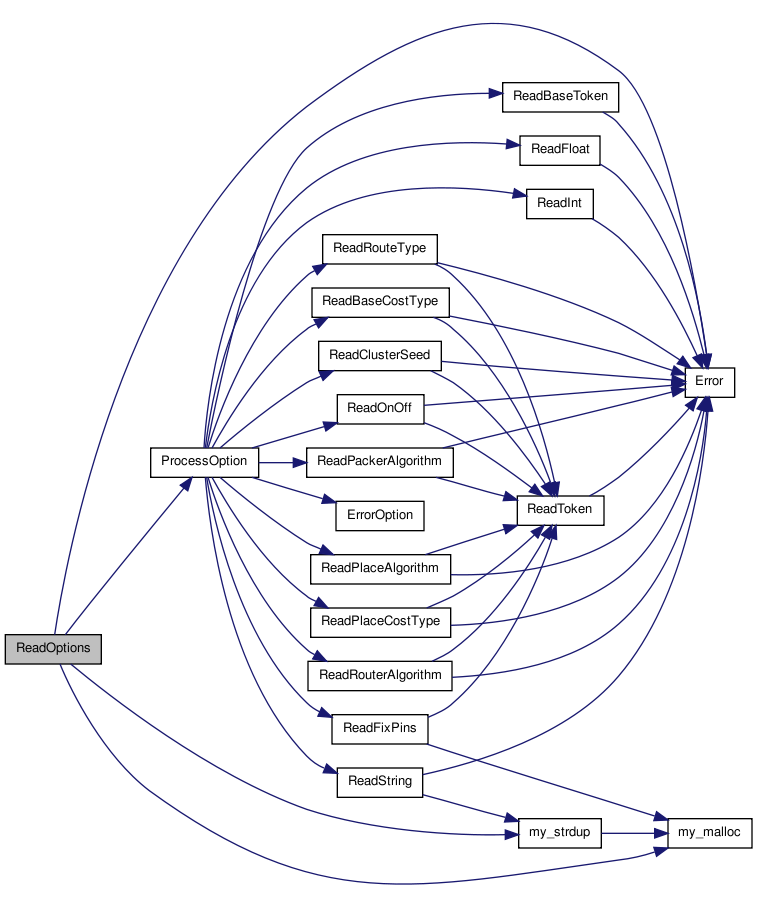vpr/SRC/base/ReadOptions.h File Reference
 This graph shows which files directly or indirectly include this file:
This graph shows which files directly or indirectly include this file:Go to the source code of this file.
Data Structures | |
| struct | s_options |
Typedefs | |
| typedef struct s_options | t_options |
Functions | |
| void | ReadOptions (INP int argc, INP char **argv, OUTP t_options *Options) |
Typedef Documentation
Definition at line 4 of file ReadOptions.h.
Function Documentation
| void ReadOptions | ( | INP int | argc, |
| INP char ** | argv, | ||
| OUTP t_options * | Options | ||
| ) |
Definition at line 49 of file ReadOptions.c.
{
char **Args, **head;
/* Clear values and pointers to zero */
memset(Options, 0, sizeof(t_options));
/* Alloc a new pointer list for args with a NULL at end.
* This makes parsing the same as for archfile for consistency.
* Skips the first arg as it is the program image path */
--argc;
++argv;
head = Args = (char **)my_malloc(sizeof(char *) * (argc + 1));
memcpy(Args, argv, (sizeof(char *) * argc));
Args[argc] = NULL;
/* Go through the command line args. If they have hyphens they are
* options. Otherwise assume they are part of the four mandatory
* arguments */
while(*Args)
{
if(strncmp("--", *Args, 2) == 0)
{
*Args += 2; /* Skip the prefix */
Args =
(char **)ProcessOption((const char *const *)Args,
Options);
}
else if(strncmp("-", *Args, 1) == 0)
{
*Args += 1; /* Skip the prefix */
Args =
(char **)ProcessOption((const char *const *)Args,
Options);
}
else if(NULL == Options->ArchFile)
{
Options->ArchFile = my_strdup(*Args);
++Args;
}
else if(NULL == Options->CircuitName)
{
Options->CircuitName = my_strdup(*Args);
++Args;
}
else
{
/* Not an option and arch and net already specified so fail */
Error(*Args);
}
}
free(head);
}
 Here is the call graph for this function:
Here is the call graph for this function: Here is the caller graph for this function:
Here is the caller graph for this function:


